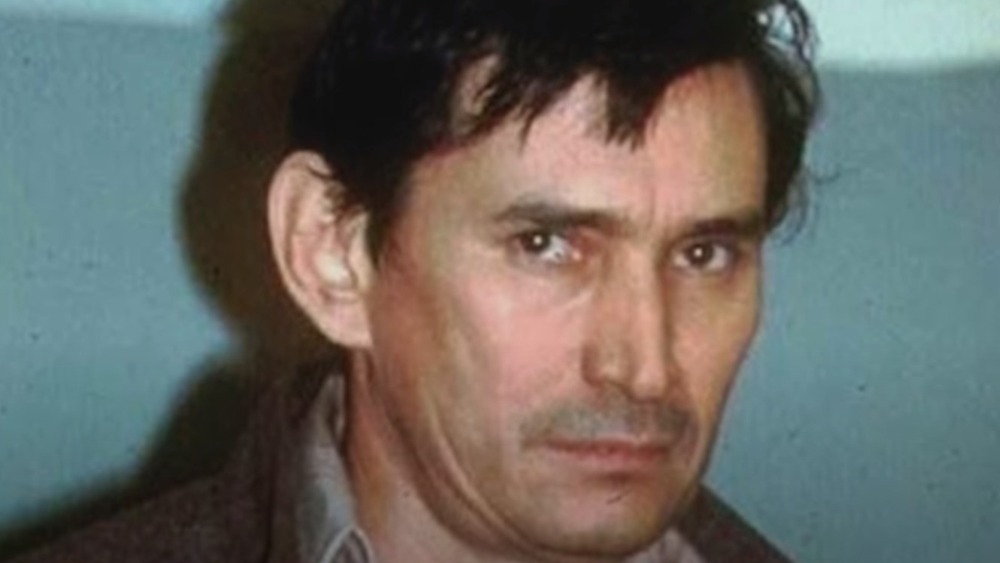Unveiling Miguel Ngel Flix Gallardo: El Padrino's Story & Legacy
How does one rise from a Sinaloa State Police trooper to become "El Padrino," the Godfather of a cartel that would reshape the landscape of Mexican drug trafficking? Miguel ngel Flix Gallardos journey is a chilling testament to ambition, ruthlessness, and the seductive allure of power, a path that ultimately led to a downfall as dramatic as his ascent.
Born in Culiacn, Sinaloa, Mexico, on January 8, 1946, Miguel ngel Flix Gallardo's life encapsulates the story of the modern Mexican drug trade. He is a figure of immense notoriety, a man whose influence permeated both the underworld and, at times, the corridors of power. His aliases, "El Jefe de Jefes" (The Boss of Bosses) and "El Padrino" (The Godfather), speak to the fear and respect he commanded, a testament to his iron grip on the narcotics trade. His early years, far from foreshadowing the criminal empire he would build, began with a career in law enforcement.
| Full Name: | Miguel ngel Flix Gallardo |
| Born: | January 8, 1946 |
| Birthplace: | Culiacn, Sinaloa, Mexico |
| Also Known As: | "El Jefe de Jefes" (The Boss of Bosses), "El Padrino" (The Godfather) |
| Nationality: | Mexican |
| Known For: | Founder of the Guadalajara Cartel; Pioneer of the modern Mexican drug trade. |
| Criminal Status: | Convicted |
| Family: | Married with children |
| Children: | Abril Flix Murillo and Miguel Flix Murillo (Miguel Jr.) |
| Education: | Sinaloa State Police Trooper |
| Career: |
|
| Arrested: | 1989 |
| Conviction: | Murder of DEA Agent Enrique Camarena, Drug Trafficking, and others |
| Current Status: | Imprisoned |
| Key Events: |
|
| Related to: | Rafael Caro Quintero, Ernesto Fonseca Carrillo, Enrique Camarena |
| Reference: | Wikipedia |
After completing his education, Gallardo began his career as a Sinaloa State Police trooper, a starting point that would later stand in stark contrast to the life he would lead. This initial foray into law enforcement, however, provided an early insight into the workings of power and corruption. He rose through the ranks, eventually becoming the bodyguard of Leopoldo Snchez Celis, then the governor of Sinaloa. This proximity to authority, coupled with his experiences on the force, undoubtedly shaped his understanding of how to navigate the complex landscape of power and influence that would come to define his later career.
The transition from law enforcement to the world of drug trafficking was not a sudden leap, but a gradual descent into a world where illicit wealth and influence were the currency of the day. Gallardo began to broker deals for drug traffickers, utilizing the connections he had cultivated during his time in the police force. It was a calculated move, one that allowed him to build relationships with key figures in the burgeoning drug trade, including Rafael Caro Quintero and Ernesto Fonseca Carrillo, also known as "Don Neto." These partnerships would prove crucial in the formation and rise of the Guadalajara Cartel.
The Guadalajara Cartel, formed in the 1980s, marked a pivotal moment in the history of Mexican drug trafficking. Gallardo, along with Quintero and Fonseca Carrillo, consolidated power and established a sophisticated infrastructure for moving massive quantities of drugs, primarily cocaine and marijuana, into the United States. They weren't the first to traffic drugs, but they were pioneers in centralizing operations, creating a more efficient, and far more lucrative, system. The cartel controlled vast territories and employed a network of corrupt officials, effectively shielding their operations from law enforcement.
Gallardo's vision went beyond mere trafficking; he understood the importance of controlling the entire supply chain. Under his leadership, the Guadalajara Cartel built relationships with Colombian drug lords, securing access to cocaine and establishing efficient routes for its transport through Mexico and into the United States. This strategic alliance, combined with the cartel's own marijuana and poppy cultivation operations, made them a formidable force, capable of generating enormous profits.
The cartel's success, however, was built on a foundation of violence and intimidation. As the organization grew, so did its willingness to employ brutality to eliminate rivals and maintain control. This ruthlessness, while effective in the short term, would ultimately contribute to the cartel's downfall. The murder of U.S. Drug Enforcement Administration (DEA) agent Enrique "Kiki" Camarena in 1985 proved to be a turning point.
Camarena, an undercover DEA agent, had infiltrated the Guadalajara Cartel and was gathering critical intelligence on its operations. His investigations threatened the cartel's vast empire, leading Gallardo and his associates to order his kidnapping and torture. Camarena's brutal murder sent shockwaves through the DEA and the U.S. government, and it triggered a massive manhunt that would ultimately lead to the dismantling of the Guadalajara Cartel and the arrest of its leaders.
The Camarena case was more than just a crime; it became a symbol of the corruption and impunity that had taken root in Mexico. The U.S. government, enraged by the murder of one of its agents, put immense pressure on the Mexican authorities to bring the perpetrators to justice. This pressure, coupled with the DEA's relentless pursuit, eventually led to the capture of Gallardo in 1989. The arrest, and subsequent conviction, of Gallardo marked a significant blow to the Mexican drug trade, though it did not spell its end.
The legacy of Miguel ngel Flix Gallardo is complex and multifaceted. He is remembered as a visionary, the architect of a drug trafficking empire that reshaped the landscape of organized crime in Mexico and beyond. He was a master strategist, a shrewd negotiator, and a ruthless enforcer. Yet, he is also a convicted murderer, a man whose ambition led to violence, corruption, and the erosion of the rule of law. His story serves as a stark reminder of the human cost of the drug war and the enduring allure of power.
Even from behind bars, Gallardo's influence persisted for years. The Guadalajara Cartel fragmented after his arrest, giving rise to numerous smaller cartels, including the Tijuana Cartel, which was led by his nephews, the Arellano Flix brothers. These new organizations, fighting for control of the lucrative drug trade, continued to fuel the violence and corruption that had become synonymous with the Mexican drug war.
Gallardo, despite his conviction and imprisonment, has maintained a degree of notoriety and continues to be a figure of fascination for many. His life story has been dramatized in various media, most notably in the Netflix series "Narcos: Mexico," where he is portrayed as a complex and compelling character, a man whose ambition and ruthlessness were matched only by his charisma and strategic brilliance. These portrayals, while often fictionalized, have further cemented his place in the popular imagination, making him a symbol of the dark underbelly of the drug trade.
In an exclusive interview with Noticias Telemundo, Gallardo denied any involvement in Camarena's murder, even sending a message to the agents widow. However, the evidence against him was overwhelming, and his conviction remains a testament to the unwavering determination of law enforcement, both in Mexico and the United States, to bring him to justice.
The impact of Miguel ngel Flix Gallardo on the Mexican drug trade is undeniable. He was not the first drug trafficker, but he was a pioneer, the man who brought order and structure to a chaotic industry. His strategies and tactics have been emulated by countless other cartels, and his legacy continues to shape the landscape of organized crime in Mexico and beyond. From the streets of Culiacn to the corridors of power, his influence was felt, and his story serves as a chilling reminder of the destructive power of greed and the enduring allure of the criminal underworld.
Gallardos case, and the murder of Camarena, underscored the need for international cooperation in combating the drug trade. The DEA's relentless pursuit of Gallardo and his associates, coupled with the Mexican government's efforts, demonstrated that the fight against organized crime required a unified front. This cooperation, however, has not been enough to stop the flow of drugs, or to stem the violence that continues to plague Mexico. The legacy of "El Padrino" serves as a constant reminder of the challenges and complexities inherent in fighting the drug war.
The Guadalajara Cartel, under Gallardo, created a model that subsequent cartels adapted. This model involved not just the movement of drugs, but the establishment of networks of corruption, violence, and intimidation. Gallardo understood that success meant not only controlling the drug trade, but controlling the environment in which that trade operated. This involved having allies within the government, the police, and the judiciary. It meant silencing any who threatened the empire through the use of violence. The cartels that followed Gallardo adopted this model, with devastating consequences.
The arrest and imprisonment of Gallardo did not end the Mexican drug war. Instead, it fragmented the Guadalajara Cartel, creating a power vacuum that was quickly filled by new players, new cartels, and new levels of violence. The legacy of Gallardo is, in this respect, a mixed one. He built an empire, but it was an empire built on sand. His ambition and ruthlessness fueled his rise, but they also contributed to his downfall. His story is a cautionary tale, a reminder that the pursuit of power, especially when driven by greed and ambition, can lead to a destructive path.
The name Miguel ngel Flix Gallardo will forever be etched in the annals of Mexican history, not only as a powerful drug trafficker but also as a man who fundamentally altered the course of organized crime. His life, from Sinaloa State Police trooper to "El Padrino," is a testament to the seductive power of the criminal underworld and the enduring consequences of the drug war.


